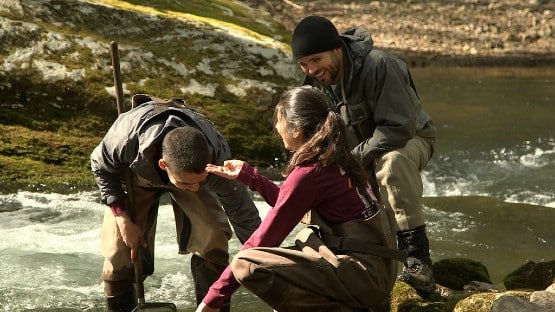
Might there be gold in Virginia’s hills? The National Academies of Sciences, Engineering, and Medicine is working towards the answer.
Virginia Tech faculty members William Hopkins and Robert Bodnar were part of a 13-person technical team convened by NASEM to provide their subject-matter expertise to produce “The Potential Impacts of Gold Mining in Virginia” report released last month.
“Our task as a committee was to evaluate if Virginia has the appropriate regulatory structure to safely start gold mining again,” said Hopkins, who served as the committee’s chair and is a professor in the Department of Fish and Wildlife Conservation in the College of Natural Resources and Environment.
The impetus was legislation passed last year by the General Assembly directing the secretary of natural resources, the secretary of health and human resources and the secretary of commerce and trade to establish a work group to study gold mining in the commonwealth.
The Virginia Department of Energy contracted NASEM to lead the study effort.
Over the course of more than a year, the committee hosted presentations and discussions with representatives from industry, academia, community-based organizations and state and federal governments.
The committee also heard from stakeholders during town hall meetings and visits to communities as well as while touring several mines in Virginia and South Carolina.
“If gold mining were to resume in Virginia, regulation and oversight should be the cornerstone of state efforts to mitigate negative impacts,” said Hopkins, the founding director of the Global Change Center, one of the four core centers in the Fralin Life Sciences Institute at Virginia Tech.
“As Virginia’s laws and regulations currently stand, they are not up to the task of minimizing the risks to Virginia’s communities and environment by ensuring that industry adheres to modern engineering standards and best practices. Our report points to opportunities to strengthen these systems to minimize risk of harming water resources, ecosystems, and human health,” Hopkins said.
Bodnar, the C.C. Garvin Professor and University Distinguished Professor in the Department of Geosciences in the College of Science at Virginia Tech, was charged with assembling a detailed description of the geological and geochemical characteristics of Virginia gold deposits and then extrapolating these data points to identify deposits elsewhere around the globe that exhibited similar features.
He points to several imperatives from the report, including the need for a broad, interdisciplinary and multidisciplinary approach involving geoscientists, ecologists, regulators, mining engineers, health professionals, and others to properly assess the complete range of potential impacts of gold mining on the environment and public health.
“The most effective way to minimize potential impacts from gold mining is to begin with a cradle-to-grave approach that considers all aspects of exploration, development, mining, remediation, closure and long-term monitoring from the very earliest stages and, importantly, solicits and includes input from all stakeholders involved,” Bodnar said.










